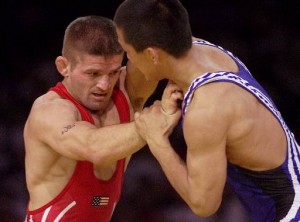Heads Up (Cash) Poker Tips
Even though the rules of the game remain consistent, head-up is completely different to a normal poker game with 6-10 players. It is truly the ‘truest form of poker’ and pure ‘psychological warfare’. The cards matter less and your read on your opponent matters much more. Nevertheless, there are huge swings involved as it is very easy to obtain over 200 hands an hour.
The pace of the game, heightened aggression levels and ultimately the swings, require discipline as to not tilt. If you happen to run bad versus someone or get beaten continuously, it is very easy to get frustrated and start playing irrationally. Therefore, it is not a game for everybody. If you are prone to frustration and tilt, I do not recommend you play heads-up or if you insist on playing it, play the very low limits.
If you conquer your emotions and find or only play the right opponents (bum-hunt), it can be an extremely profitable and enjoyable game.
Aggression
Aggression is key since the last person to show aggression in any particular hand usually wins the pot as most flops miss. These small pots quickly add up, particularly as the game is so fast. It is important to keep betting and picking up these small pots at most opportunities. Of course, do not overdo it since if your opponent has any skill, he will quickly pick up on the fact that you often do not have very much and start playing back at you.
Playing Blinds
Small blind (button)
The beauty of heads-up is that you are constantly either fighting for blinds or defending blinds. The person on the button always has the small blind and position (dealer button). It is crucial to keep fighting for the big blind when you are on the button and not wait for premium hands…
The purpose of raising from the button is to:
- Steal blinds
- Get money into the pot while you have position
- If called, you will often be in a good position to take down the pot
All these choices are not the best for your opponent since he will have to play out of position for the remainder of the hand. If your opponent has a strong hand (or not but representing one) then you can usually fold to his re-raise without any problems unless you have something worth defending or an opportunity to (re)bluff.
If your opponent is quite tight, it is OK to raise every single button. On the other hand, if your opponent is very aggressive, it is a mistake to keep constantly stealing blinds with unprofitable hands. Keep stealing but just back down slightly and fold a bit more.
Big Blind (out of position)
Playing the Big Blind is not that much fun since you will play out of position for the remainder of the hand and if you are up against a competent opponent, you will face quite a bit of pressure from his pre-flop raises. The choices are to fold, call or re raise. You should be folding most of the time (about 60-75%), calling very few times (10-20%) and 3 betting the remainder of the times (15-25%) depending on your opponent’s tendencies. Against a regular opponent (not too aggressive, not too passive) you should be folding most of the time.
Hands that I would generally be calling (against a normal opponent) are 22-77, 76s+, AT-AQ, KJ, KT. It is important to three-bet some of these hands once in a while as to not be so predictable.
Some opponents are quite passive and will limp on the button a majority of the time. This is probably the type of opponent you want to be playing against since you will get to see many flops and be able to steal scary looking flops that you think will likely not hit your opponent’s range.
If your opponent is aggressive, the only way to win is to fight ‘fire with fire’ and re-steal often and three-bet ‘light’, ie: good but not great hands. You can also call more since your range should be OK versus the expected range of an aggressive opponent. The worst situation is if your opponent decides to call often and you do not have a strong hand or you miss completely. In these situations you will be stuck out of position in a big pot. If you check to him on the flop, he will likely sense that you are weak and try to steal the pot. This can be extremely frustrating and sometimes you just have to let go. Don’t get caught up in silly egocentric raising wars, stick to doing what is profitable in every decision.
If your opponent is a complete maniac, then you should often let him take over with his bets and raises and slow play often (such as check raising his continuation bets on flop or turn or even both!). Or call the flop bet and lead out on the turn and see how he reacts.
The truth is that many players who are overaggressive pre-flop are completely clueless post-flop. If you are competent at reading board textures and putting your opponent on a range then you will have a distinct advantage over these ‘clueless lags’. Just make sure that you do not over-inflate pots too much pre flop and try to play more post flop where you have more of an edge.
Play for big pots
The beauty of constantly taking the little pots with not much of a hand is that occasionally you will pick up a monster hand and be involved in a big pot. In this case your opponent may not believe that you have such a strong hand as you are representing (because you have been playing so aggressively since the start) and you have the chance to win a big pot. Pots may grow very large as players re-buy. Deep stack heads-up poker is a thing of beauty, it is not uncommon to see 400 big bet+ pots!
Adapting and Mixing Up Your Play
Since you will likely be playing the same opponent for a while in a typical heads-up match, he will have some good reads on you and you will inevitably have some good reads on him. Therefore, it is crucial to be unpredictable and know when to ‘switch gears’. Just be aware of how your opponent views you. For example, if you happen to win a lot of pots without showdown, he may think that you are stealing quite regularly. He may think you’re a big bluffer loose/aggressive maniac and start calling you down very lightly. As soon as you sense that he is doing that, you need to tighten up immediately and DO NOT BLUFF. This will prove very profitable next time you pick up a nice hand.
This works in reverse in that if you are winning a lot of pots at showdown, showing good hands and folding often, you can start to loosen up slightly and bluff more. He will give you some respect, up to a point. The faster you can make the adjustment, the better it will be and the more money you will usually win.
Click here for a previous article, 5 Tips to Improve Your Heads Up Poker Play
BrasilNut







